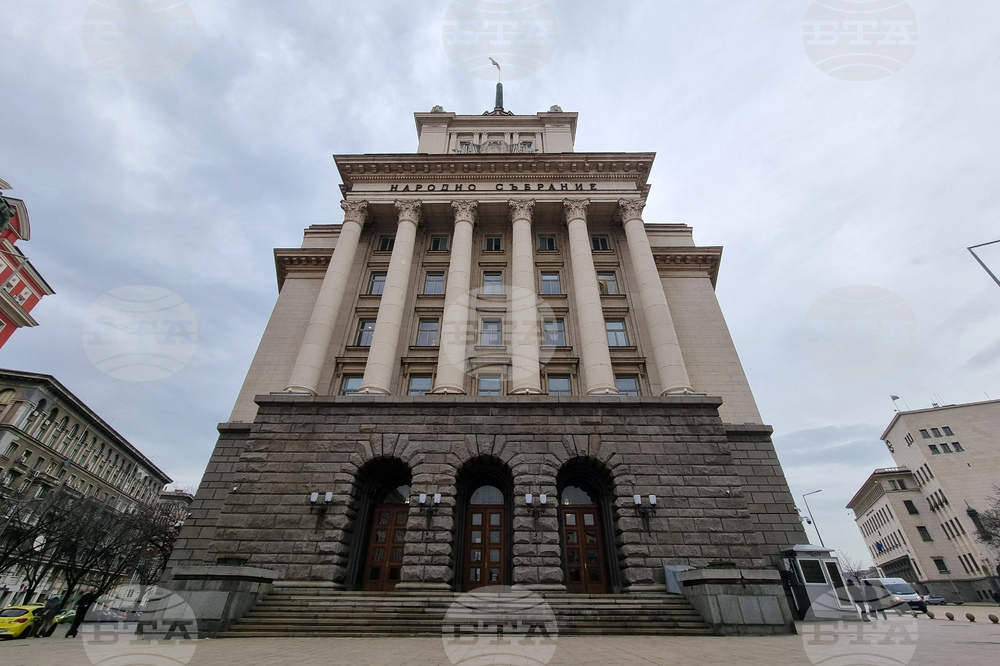site.btaUPDATED Parliamentary Committee Approves Five Bills Revising the Election Code on First Reading


At its first meeting on Tuesday, the 51st National Assembly Legal and Constitutional Affairs Committee adopted on first reading five bills amending the Election Code, moved by Continue the Change - Democratic Bulgaria (CC-DB) (two bills), There Is Such a People (TISP), Vazrazhdane, and BSP-United Left.
The bills were included on the agenda of the Committee meeting as extraordinary items, which the MPs approved almost unanimously.
Draft revisions to the Religious Denominations Act were also added to the order of the day, which initially consisted only of proposed revisions to the Judicial System Act.
The draft legislation tabled by CC-DB proposes the setting up of vote counting centres and counting commissions, as well as identifying machine votes by means of a machine tally sheet print-out. The idea is to replace manual counting, with scanners counting the paper ballots.
Under the proposed amendments, a vote counting commission is to be set up in each municipality with up to 20,000 voters on the electoral roll. If voters in a municipality outnumber 20,000, it is to be divided into counting precincts with up to 20,000 voters each. A vote counting commission is to be set up for each precinct. These commissions will have the same number of members as the respective municipal election commissions, according to the CC-DB bill.
At the closing of the polls, the section election commission is to seal the ballot box with a protective tape bearing a unique number, which is to be recorded in the tally sheet of the section election commission when the balloting materials are handed over. The ballot box is to be secured with disposable tamper-proof seals. After receiving all boxes containing the ballots from the respective counting precinct, the members of the counting commission can proceed with counting the ballots. The results for the counting precinct are to be entered in a tally sheet.
The data from both paper and machine voting are to be consolidated by the constituency election commission/municipal election commission. The work of the counting commission can be monitored via video surveillance, including by a live television broadcast.
The proposed amendments envisage round-the-year training and public awareness campaigns for voting abroad.
The idea is to ensure maximum public visibility and transparency of the processing of voting results so as to build public confidence in the electoral process, the parliamentary group said. The processing of voting results by counting centres is becoming widespread, primarily in countries with established democratic traditions, the coalition argued. As early as 2011, Bulgaria conducted an experimental vote count in a counting centre in Boboshevo Municipality (Southwestern Bulgaria) during concurrent local and presidential elections. The results of the experiment were praised highly by both the Central Election Commission and Transparency International (the NGO which initiated the experiment), CC-DB said.
In their bill, TISP also propose the establishment of counting commissions, along with a change in the manner of compiling electoral rolls and in the type of machine voting. They move for a postponement of the setting up of a separate constituency for voting abroad.
The draft act to amend and supplement the Election Code introduced by Vazrazhdane envisages scrapping of paper ballots, of contestants' numbers in the ballots (leaving only the names of parties and coalitions), and of voting screens. Another proposal is to limit the number of voting sections that can be set up in non-EU member states outside Bulgaria's diplomatic missions to 20 per country.
The parliamentary group moves for changes in the eligibility criteria for members of the Central Election Commission, regarding their managerial and professional experience and requiring party non-alignment: they should not have performed any party functions or engage in party activism over the last three years.
BSP-United Left propose regional counting centres for areas with up to 30,000 voters and active voter registration within five days in advance of polling day. The registration is to be based on the electoral rolls for the preceding elections of the same type. The idea is to purge electoral rolls of "ghost voters" and deter the "Indian file" abuse, in which vote buyers hand voters a filled-in ballot to cast. According to that bill, it will be possible for voters to be added to the electoral roll on polling day at their permanent address.
The parliamentary group said that the changes are prompted by a number of irregularities at the latest parliamentary elections. They argue that it is far easier to monitor 200 counting centres than 13,000 section election commissions. Video surveillance is envisaged for after the close of the polls for the way section commissions handle the post-voting procedures.
Other proposals include experimental machine counting at the next parliamentary elections in a number of sections to be determined by the Central Election Commission and scrapping of mobile voting sections as conducive to vote rigging.
/MT/
news.modal.header
news.modal.text